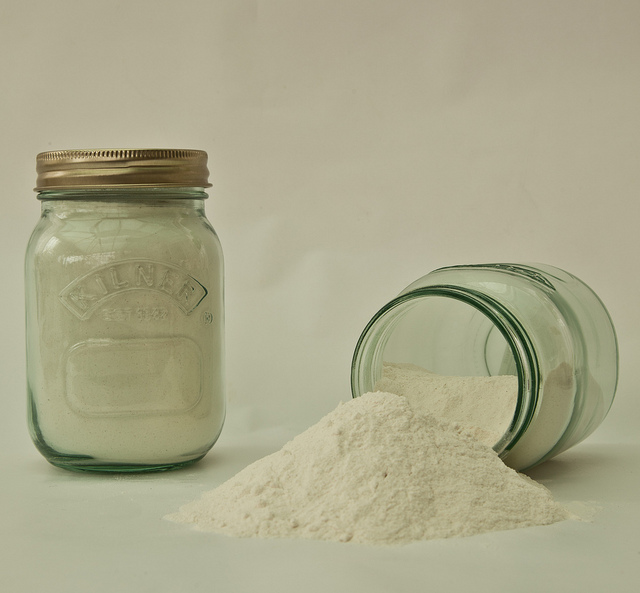With all of the new flours on the market, from grain, refined, milled seed, and nut flours, no wonder there’s confusion where to store the stuff. While popping a bag of white refined flour in the pantry is perfectly fine, is there a better way? From bugs invading and becoming rancid before you get a chance to use any, various flours have different shelf lives and storage requirements to get the most out of them. Thankfully the team from theKitchn has set us straight and gives tips from Susan Reid of King Arthur Flour and Cassidy Stockton of Bob’s Red Mill to perfect the art of flour storage. Looking a bit further into the different types of flours and why they spoil has to do with how they’re processed. The flours with higher oils, like whole wheat and nut flours, tend to go rancid and spoil more quickly since they have their bran and germ intact. Refined flours have less oils and nutrients due to the bran and germ removed, allowing for a longer shelf life. So with refined flours, theKitchen recommends storing in a cool, dry place. Your kitchen pantry should do just fine especially since the flours’ shelf life is a couple of years. Plus, if you’re an avid baker and go through the stuff quickly, there should be no problem. Though storing in the refrigerator can never hurt to keep the bugs away, if you don’t use all-purpose flour frequently. Whole grain flours like quinoa, millet, and buckwheat are super prone to spoilage and oxidation due to the high oil content. With this stuff, you will want to place in the freezer to get the most out of it since the shelf-life of these flours are only a few months. Though you can get away with the refrigerator, the freezer is your best bet to help slow down oxidation and spoilage. Nut flours like almond and coconut flour are similar to their whole grain flour brothers and sisters; they spoil and go rancid quickly due to the high oil content. You bet it’s the best to freeze these types of flours, especially when the average shelf life in the freezer is a year and half of that in the refrigerator. When it’s all said and done, make sure to get the most bang out of your buck; buy only flours you need so you’re not tossing unused flour out the window. Along with properly storing your flours in colder conditions, it’s best to place flours in airtight containers to help reduce oxidation and keep out the bugs. Check out the link below for more tips from TheKitchn:
Read MorePhoto by: david pacey | Flickr






